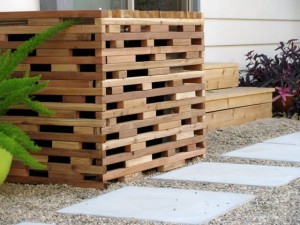5 Tips to Make Your HVAC Last Longer
Whether you recently updated your HVAC system or are simply trying to ensure that your current set-up lasts as long as possible, do you find yourself worrying about the system on a regular basis? How can you be sure that your air conditioner will work properly once summer hits? In order to avoid stressing about your heating and cooling systems on a regular basis, extend their lifetimes simply by implementing a few preventative measures. Here are five ways to extend your HVAC’s lifespan:
1. Examine the Airflow
Contents
If you live in an older home, pool-designed ductwork could be a contributing factor for restricted airflow, effecting your cooling and heating efficiency and effectiveness. Other factors include old air filters, dirty coils, and structural leaks. If you suspect you have structural leaks, contact a professional to perform a home energy audit. HVAC specialists will examine your ductwork, check for leaks around windows, doors, and outlets, and offer a course of action. Aside from fixing leaks, cleaning and changing your air filters on a regular basis is one of the best ways to extend your HVAC while improving overall efficiency.
 2. Shade Exterior A/C Units
2. Shade Exterior A/C Units
In many cases, our heating and air conditioning units work harder than they need to, which means limited efficiency and effectiveness with higher energy costs. If your outside air conditioning unit is exposed to sunlight, for example, it will have to work much harder then necessary to cool your home. If possible, put up a small fence around the unit or plant small trees or shrubs near the unit to provide shade and improve efficiency; be sure to leave enough room for proper airflow and technician servicing.
3. Avoid Excess Indoor Heat Accumulation
As you know, many appliances, electronics, and lamps self-produce heat. If these heat-generating devices are near a thermostat, they can trick the ac unit into thinking a room is hotter than it actually is, which will make the AC run longer in an attempt to cool things down. To avoid this, keep televisions, lamps, and other devices away from thermostats.
4. Block Common Heat Escape Routes During Winter
Even if your home is structurally sound, with no air leaks, you may still be losing heat through fireplaces or exhaust fans. Close the damper when the fireplace is not in use, and consider installing glass doors to help keep heat from escaping. Use exhaust fans sparingly in winter, as they are designed to pull heated air out of your house. Finally, invest in proper attic insulation to avoid letting warm air escape through the roof.
5. Support the System
Another way to extend your HVAC is by supporting the system as much as possible. Depending on the season, there are many little things you can do to help avoid overworking your air conditioner or heater. In the summer, try these tips to support your air-conditioner:
• Install white window shades or blinds to reflect heat in summer.
• Close shades and blinds that face the sun in the summer; open sun facing blinds in winter.
• Run the ceiling fan in a counter-clockwise direction (so air blows straight down) in the summer, and clockwise in the winter.
• Do not allow the home to overheat or become too cool, as it will take much more energy to re-regulate the temperature.
• Close the vents and doors of rooms not heavily in use.
• Invest in a home service plan from HVAC specialists to ensure all equipment is working at maximum efficiency.
Following these tips will help cool and heat your home naturally and extend your HVAC’s lifespan by putting less pressure on the system.
